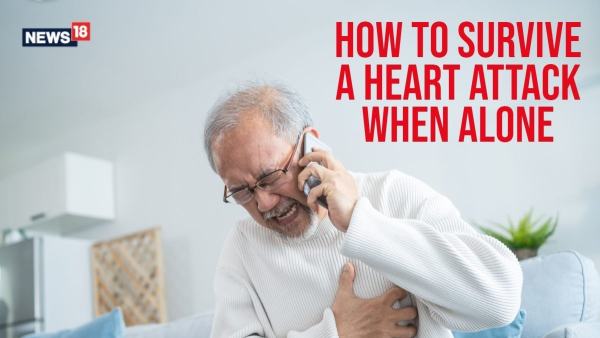World Heart Day, observed annually on September 29, aims to raise awareness about heart health and the importance of preventing cardiovascular diseases. This initiative was launched in 1999 by the World Heart Federation (WHF) in partnership with the World Health Organization (WHO). The concept was developed by Antoni Bayés de Luna, who served as the WHF president from 1997 to 1999. Originally celebrated on the last Sunday of September, the day was first observed on September 24, 2000.
According to the WHF, cardiovascular diseases are still the leading cause of death worldwide, accounting for more than 20.5 million deaths each year from conditions such as heart attacks, strokes, and heart failure.
World Heart Day serves as a crucial reminder to prioritise regular health check-ups, as factors such as poor diet, sedentary lifestyles, smoking, and excessive alcohol consumption can significantly increase the risk of heart- issues.
How to survive a heart attack if you are alone
The primary signs of a heart attack include chest pain, which may feel like pressure or tightness, along with symptoms such as difficulty breathing, sweating, and pain in the arms, back, or jaw. Other signs include nausea, light-headedness and fatigue.
Here’s what you should do if you are alone and experiencing a heart attack:
- Call for emergency helpIf you think you are having a heart attack, the first and most important step is to call for emergency medical assistance. Timely professional treatment is essential to protect your heart.
- Consider taking aspirinIf you have aspirin and are not allergic, taking it may be helpful while waiting for emergency medical help. According to Johns Hopkins Aramco Healthcare, chewing aspirin before swallowing can help delay the formation of blood clots that could further block your arteries during a heart attack.
- Stay calmIt’s essential to stay as calm as possible during a heart attack, as panic can worsen the situation. Try to focus on steadying your heartbeat to help maintain a sense of control.
- Do not driveDo not attempt to drive yourself to the hospital if you are experiencing heart attack symptoms. If you begin to feel unwell while driving, safely pull over to the side of the road, as a heart attack can make driving extremely dangerous.
- Lie downIf you notice heart attack symptoms, lie on your back and raise your legs to help with breathing and oxygen flow. Use pillows or any nearby objects to support your legs and try to relax until help arrives.
- Focus on deep breathsDuring a heart attack, it’s important to take slow, deep breaths rather than rapid ones to ensure a steady oxygen supply to your heart and blood. If possible, lie near an open window or a fan, as fresh air can assist with your breathing.
- Avoid cough CPRDo not attempt Cough CPR as a method to manage a heart attack, as it can increase your risk. Attempting this technique may disrupt your heart’s rhythm and reduce the flow of oxygen to your body.
- Avoid food and drinksIt’s best to avoid eating or drinking if you suspect you are having a heart attack, as this could complicate medical treatment. You may take a small sip of water if you need to take aspirin.
